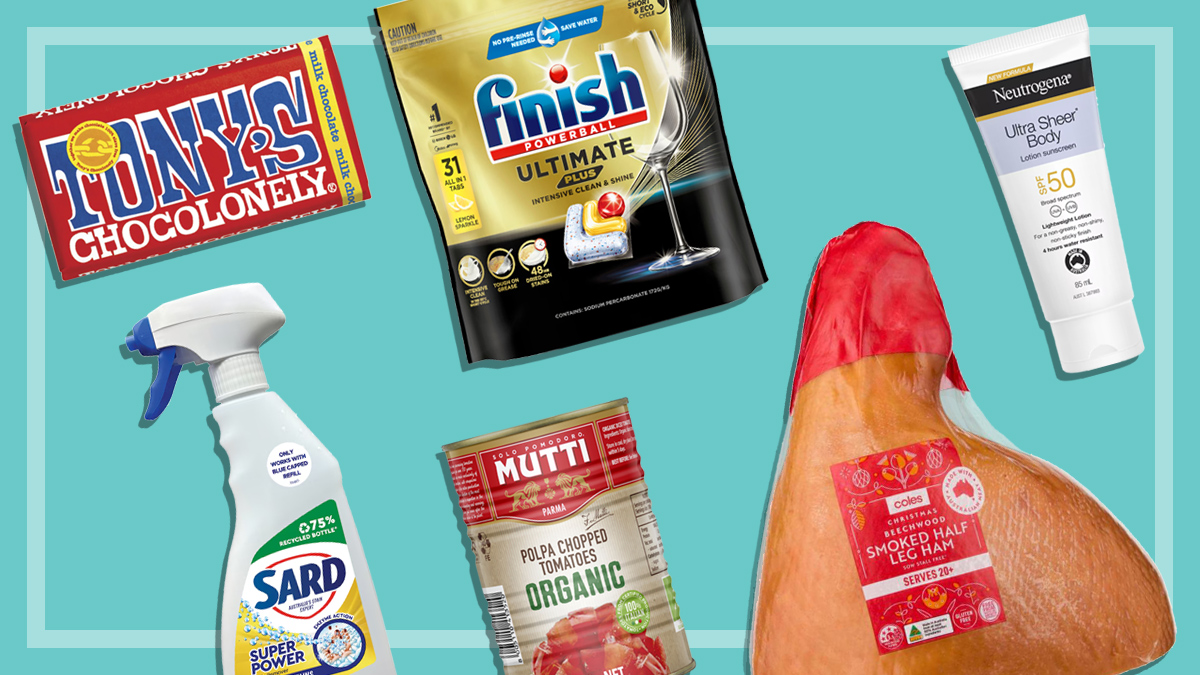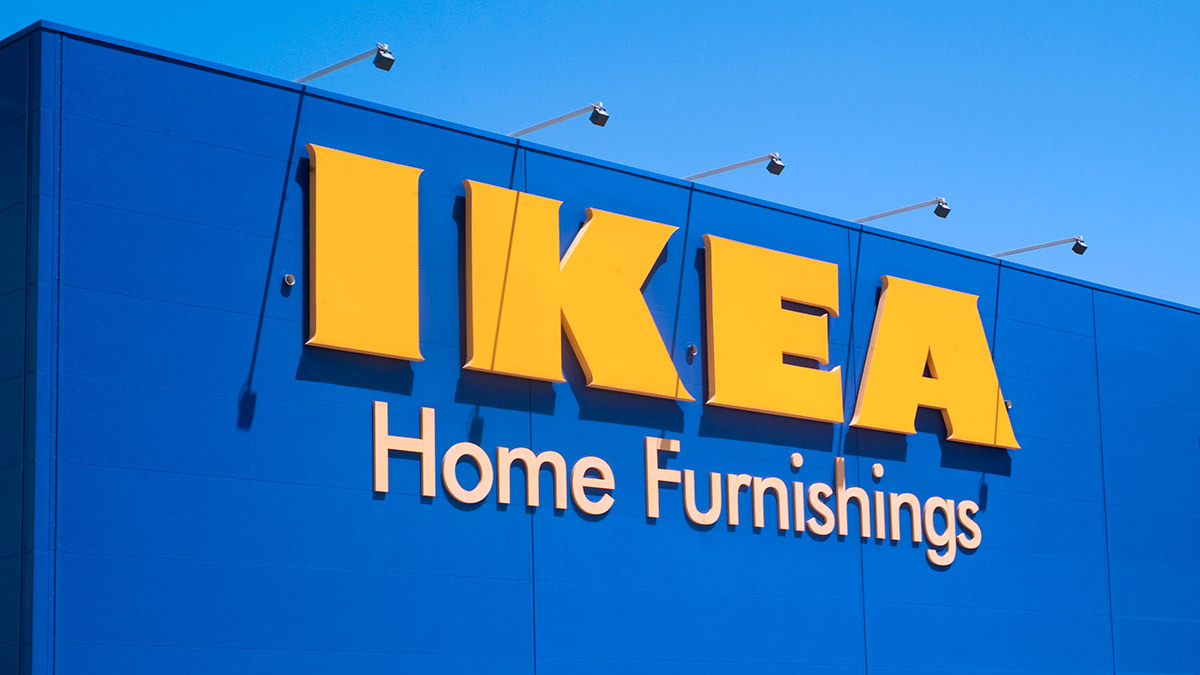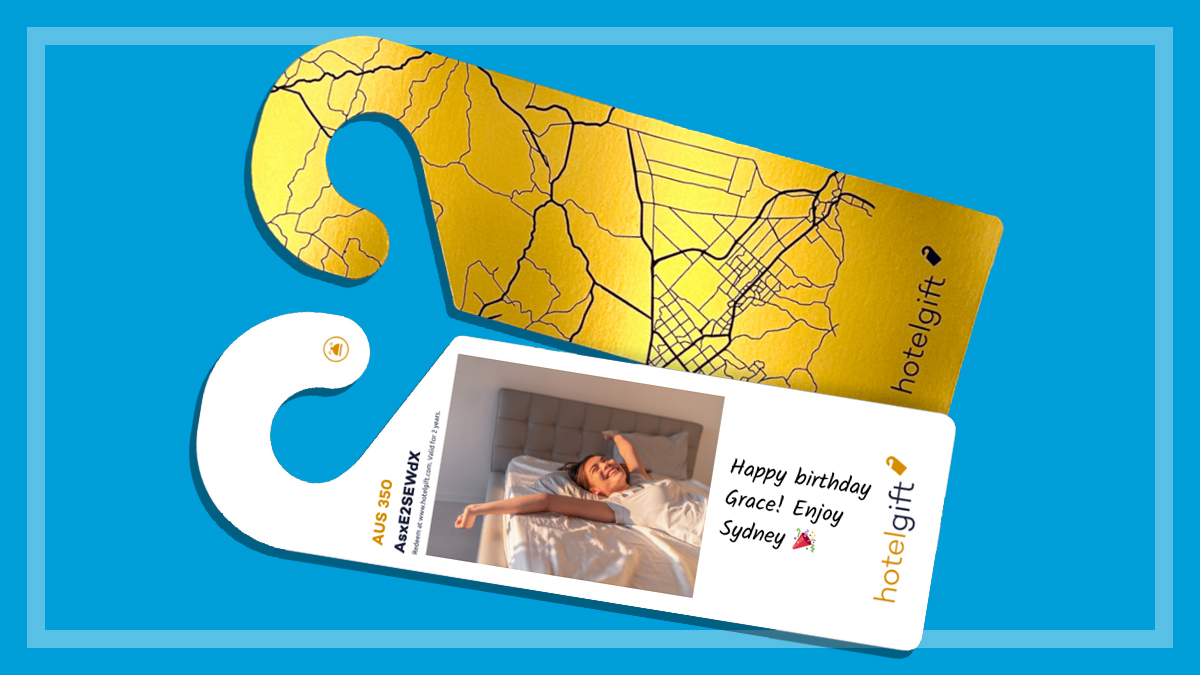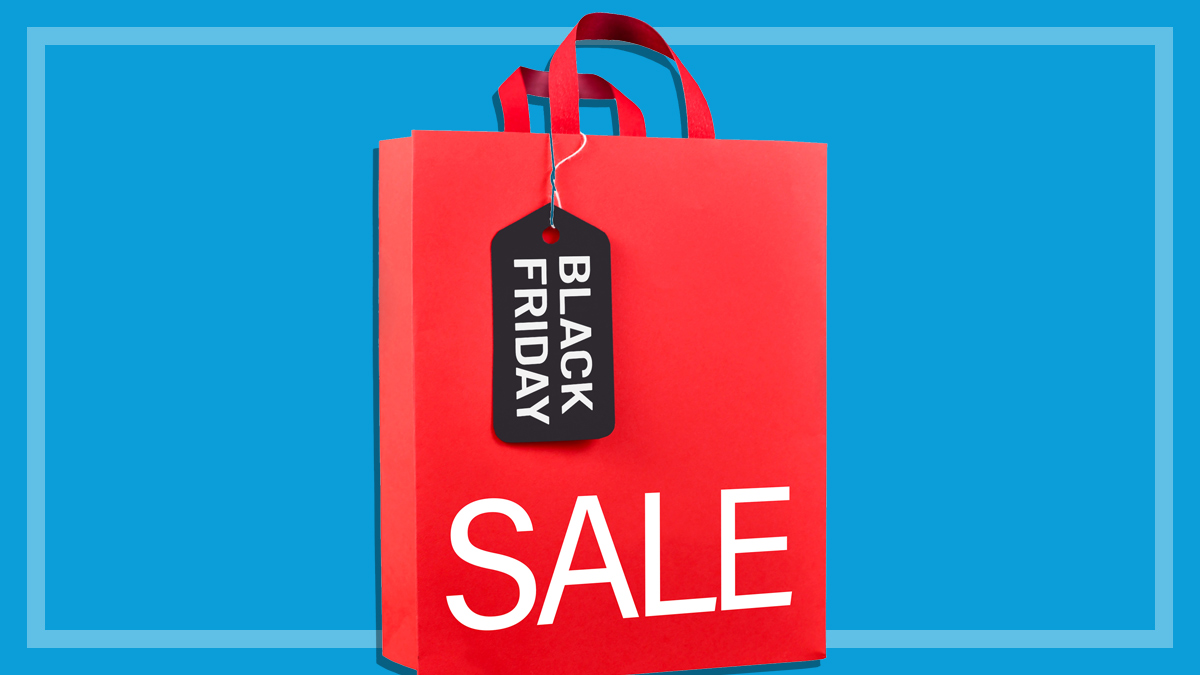Get our independent lab tests, expert reviews and honest advice.
10 brands you didn’t know were owned by big supermarkets

Need to know
- Supermarkets are revamping how they package their own-label products to make it less obvious that they're home brand
- Goods are made to look like independent products, making it difficult for shoppers to know who really owns the products they're buying
- Toiletries, gourmet foods and baby products are just some of the categories where home brands are being disguised
On this page:
- Home brand explained
- The rise of Aldi and phantom labels
- Unsuspecting phantom brands haunting aisles
- Are phantom brands good for consumers?
Standing at the supermarket shelf, it used to be easy to differentiate between a product owned by a big retailer, produced under their home brand, and one delivered by a flagship manufacturer.
But now a changing retail landscape is incentivising established supermarket players to level-up their home brand ranges.
Instead of basic, no-frills packaging emblazoned with supermarket logos, new home brands aspire to premium status, looking to attract shoppers who are willing to spend a bit more but perceive own-label products as being inferior or lower quality.
With increasing scrutiny on the supermarkets and how they allocate shelf space, we’ve taken a look at some of the ‘phantom brand’ items shoppers may not realise are a retailer’s own label.
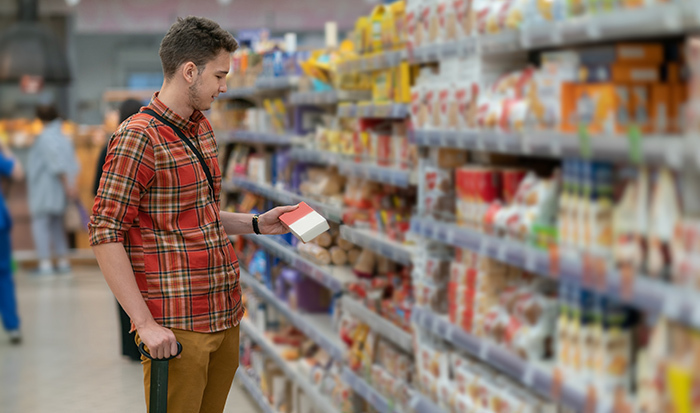
Home brand explained
Home brand, private label, or own-brand products are items that are clearly labelled with the name of the store they come from, such as Coles or Woolworths, rather than a secondary company the supermarket stocks.
While these products may look like they’ve been made by the retailer itself, they’re usually produced for them by third-party manufacturers.
The producers signing these manufacturing deals often also make their own products, which may then be sold directly alongside their home-brand cousins.
For example, companies such as the Bega Group and SPC are household names for their own goods, but they also supply supermarkets with some of their home-brand items.
Companies such as the Bega Group and SPC are household names for their own goods, but they also supply supermarkets with some of their home-brand items
Some home-brand products from different supermarkets even come from the same supplier. For example, Sydney company Nova Pharmaceuticals supplies Coles, Woolworths, Aldi and IGA with their home-brand painkillers.
Why do supermarkets create home brands?
Home brands provide retailers with a way to gain a greater share of the market and more consumer dollars via products they control.
“Supermarkets have more control over the manufacturing and packaging,” explains Dr Louise Grimmer, senior lecturer in retail marketing at the University of Tasmania.
“And home brands are not promoted, so there’s no financial outlay for advertising,” she adds.
This extra control means supermarkets can compete with established grocery producers on cost.
“It takes the middleman out, and therefore you can reduce the cost of supply and deliver those products at a lower retail price to consumers,” says Gary Mortimer, professor of retail marketing and consumer behaviour at Queensland University of Technology.
The rise of Aldi and phantom labels
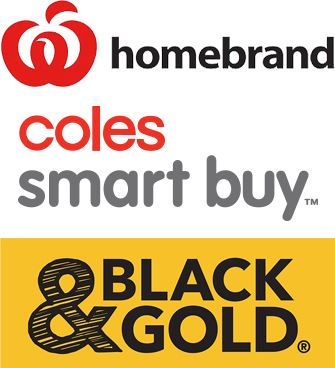
Traditionally, home-brand products were easy to spot on supermarket shelves and made no secret of their origins: “They were very generic,” recalls Grimmer.
But that changed with the arrival of Aldi in Australia in 2001.
The vast majority of products in Aldi’s stores are home brand, but this isn’t immediately obvious.
“They’re not called ‘Aldi ketchup’ or ‘Aldi cosmetics’, notes Mortimer. “Aldi created brands for those products and [other] supermarkets have seen an opportunity to adopt a similar approach.”
Grimmer agrees and says Aldi’s success has pushed other supermarkets to change how they present private label items.
“You don’t see those crappy home brand packets anymore,” she says. “You can still have a cheap product, but it can look better.”
Following in Aldi’s wake, other big retailers have dressed up their home label products in order to distance them from their brand and make it seem like they’re being provided by companies that don’t really exist.
Mortimer says the spread of these ‘phantom brands’, along with greater investment in quality, has helped private label products lose their ‘cheap and nasty’ stigma.
This has allowed home brands to be pushed into areas where they might previously have been less welcomed by shoppers, such as personal care and toiletries.
Unsuspecting phantom brands haunting aisles
Coles has committed to becoming an “own brand powerhouse” and previously promised 40% of what it sells would be home brand by 2023. The company didn’t answer our question about whether this goal has been achieved.

At Woolworths, about 21% of the 28,000 products on sale are now private label items.
While own brands make up less than 10% of what Metcash sells to its network of IGA and other independent grocery stores, it’s polished-up its private offerings, launching new brands to complement its long-standing Black & Gold range.
So, is your local supermarket trying to slip phantom brands into your basket? Below are some key categories into which Coles, Woolworths and Metcash have made forays with 10 brands you may not have realised are their own.
It’s worth noting that retailers aren’t overly secretive about their control of these products and a look at the fine print or an online search will reveal their origins. But they also serve as stark examples of how home brand products are becoming harder to spot.
Toiletries and personal care
Toiletries and other personal care items are an area where we’ve seen several additions of phantom brands.
One is Coles’ label Koi, a contemporary aspirational skincare range including hand and body washes and skin creams with a ‘brand story’ focused on naturally-derived ingredients.
Koi’s products are pricier than Coles’ more obvious home branded toiletries and come in just under the higher-end manufacturer items they’re sharing shelf space with.
Only if you turn the products around and look through the print on the back will you see that the brand is a Coles trademark
Similarly discreet in its branding is the retailer’s Zena range of hair care products.
None of these items have the plain, blunt packaging traditionally synonymous with own-brand labels that make the consumer acutely aware of their origins. Only if you turn the products around and look through the print on the back will you see that the brand is a Coles trademark.
Meanwhile, Woolworths has also been working to get its products into shoppers’ bathrooms, with its Balnea Body Company line of bathroom accessories.
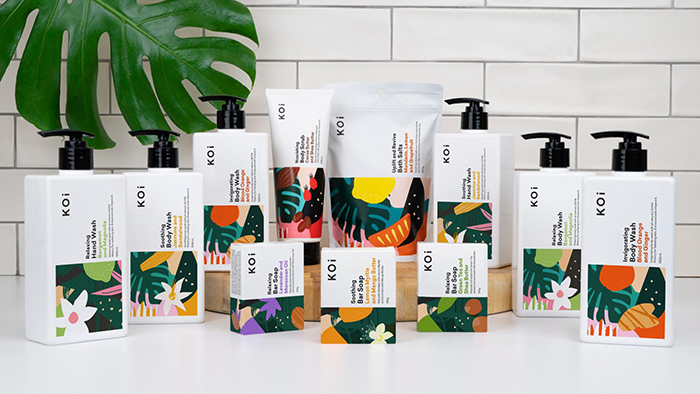
Gourmet foods
If you were a fan of the chain of upmarket grocery stores Woolworths operated until 2017, you can now find Thomas Dux-branded cheeses, salamis and dips in Woolworths stores.
The premium packaging, upmarket tasting notes and supplier stories may make it seem like you’re buying something from a boutique producer, however, this is another phantom brand owned by the major supermarket.
Hillview cheese, although slightly less fancy in appearance, is another brand you might think is wholly independent, but a read of the fine print also reveals these products are “packed for Woolworths”.

Anyone browsing an IGA or Foodworks, meanwhile, might notice a broad swathe of products (ranging from rolled oats and frozen meals to floral bars of soap) coming from a brand called Community Co.
While this ‘company’ does have its own website, the street address listed there locates it at the headquarters of Metcash.
A glance at the information on the back of the products themselves also confirms they are packed for the IGA parent company.
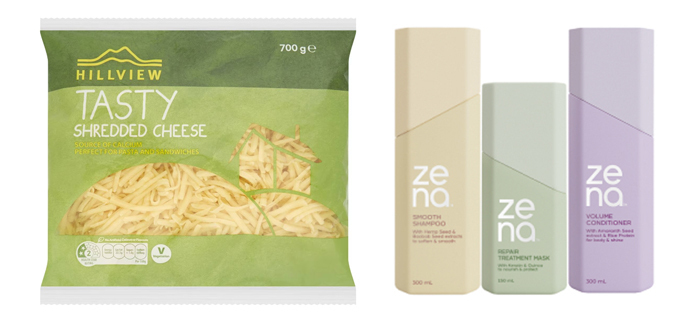
Baby goods
Infant and toddler products also have their fair share of phantom brands. For example, the CUB range you’ll find in Coles may look like many other independent childcare brands, but this one is controlled by the supermarket giant.
Pet products
It’s no secret that animal and pet care is a growing market, and here as well, big supermarkets are competing with manufacturer labels for your spend.
Coles has Woofin Good food for dogs, while Woolworths has Smitten for cats, neither of which appear different from mainstream offerings, despite undercutting many of them on price.
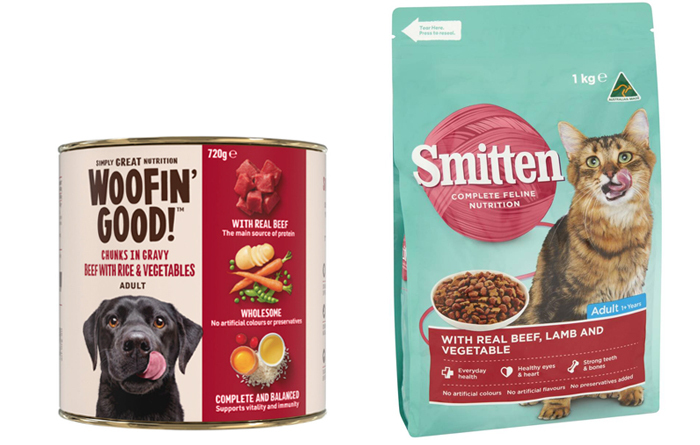
Cleaning supplies
Thinking of picking up some Shine dishwashing liquid? Well, you’ll have to go straight to your nearest Woolworths, because despite it looking like a fresh new brand from an independent company, the supermarket giant owns this label.
Are phantom brands good for consumers?
When asked, CHOICE members in our Community forum had mixed responses to phantom brands.
Some commented they would prefer more detail from retailers about who the makers of these products really are and felt the supply chain was being obscured.
As it happens, supermarkets don’t reveal the specific makers of home brand products, as we’ve found in previous investigations.
Dr Grimmer notes the growth in home brands has also concentrated the dominance of big retailers.
“They’re squeezing out the smaller brands,” she says. “So, in some ways, there’s less choice for consumers.”
They’re squeezing out the smaller brands so, in some ways, there’s less choice for consumers
Dr Louise Grimmer, University of Tasmania
This echoes a conclusion reached by New Zealand’s Commerce Commission, which in 2022 found that while private label products increase choice and lower prices in the short term, there’s a risk they could “crowd out” supplier-branded products and reduce variety and increase prices in the long term.
For our part, CHOICE believes the impact of home labels on competition warrants further investigation and would like to see the ACCC review the role these brands are playing as part of its supermarket inquiry.
Supermarkets continually champion these products as helping Australians deal with the cost of living, while noting they continue to stock other brands.
And for the time being, we still recommend trying home-brand products as a good way to save money. Through our testing, we often see these products measure favourably with and even outperform flagship label items (which can cost up to twice as much) in certain categories.
So don’t be too harsh on yourself if you fall for a phantom brand – you might just be getting yourself a decent product for less.


